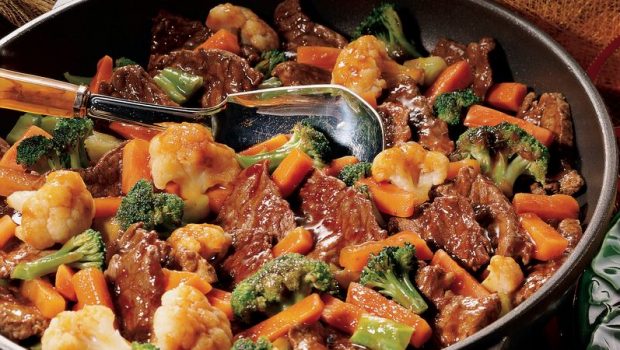Fiber is Key to Preventing Inflammation
by Doug Pucci
We’ve always known that fiber-rich foods are important to good health, but scientists are now finding out why this is true, and the answer might be surprising. Eating foods high in fiber, like fresh fruits and vegetables, as well as beans, nuts and seeds, has long been recommended to help manage or lower the risk of chronic health issues like obesity, cardiovascular disease, certain cancers and diabetes. With these and other benefits, a diet filled with fiber-rich foods can actually help us live longer, too. What scientists are now discovering is that it all comes down to gut health.
Here’s a simple explanation: our gut microbiome is made up of hundreds of types of bacteria that rely upon different kinds of dietary fiber to survive and stay healthy. If the bacteria in the gut is healthy, we’re more likely to be healthy, because we’ll have less inflammation and a stronger immune system.
Scientists reached this conclusion through tests in which they fed mice two different types of diets: one was a low-fiber, high-fat diet; the other was a high-fiber, high-fat diet. Because both groups of mice received high-fat diets, the only variable was the amount of dietary fiber they ingested.
The low-fiber, high-fat diet, as explained in the New York Times by biologist Dr. Fredrik Bäckhed, of Sweden’s University of Gothenburg, contained about 20 percent fiber and high amounts of sugar and lard. He said, it was essentially “what you would get at McDonald’s.” The study focused on the resulting diversity of bacterial species in the microbiome of mice, and the results could only be described as dramatic.
After just a few days, bacterial diversity was significantly altered, with many species becoming rare; chronic intestinal inflammation developed and both fat and sugar levels were elevated. The intestines shrank and the all-important intestinal mucus layer thinned, causing bacteria to move closer to the intestinal wall. This, in turn, produced an immune reaction. Mice on high-fiber, high-fat diets fared much better with only a modest amount of inulin fiber added to their diets, these mice gained far less weight, their intestines were more normal and their gut bacteria remained at healthy levels.
These studies show that a low-fiber diet actually starves important gut bacteria, which causes a chain reaction and disrupts the entire gut ecosystem. This causes inflammation and makes us vulnerable to many forms of chronic illness. Biologist Justin L. Sonnenburg, of Stanford University, goes even further, stating that his own research, separate from that discussed above, indicates that diets low in fiber can actually cause inflammation beyond the gut and throughout the entire body.
The takeaway from these studies is that a high-fiber diet is necessary to maintain a healthy gut microbiome and to help keep inflammation down while healing, preventing or better managing disease. However, dietary fiber sources should come from a variety of plants in order to maintain a good diversity of gut bacteria, because different bacterial species feed on different types of fiber. Couple this with reducing or eliminating processed foods and sugars, and we’ll be on track for a healthier gut and a healthier body.
For questions or appointments, call 201-261-5430. Hear Dr. Pucci’s interview podcast at PlanetNJ.com or visit GetWell-Now.com and request an information packet.




























